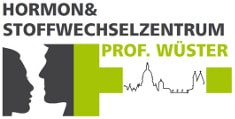Pituitary specialist from Mainz provides information on new guidelines
Endocrinologist from Mainz: Pituitary tumors must be treated in an interdisciplinary manner
A new guideline on the diagnosis and treatment of clinically hormone-inactive pituitary tumours has been published under the auspices of the German Society of Endocrinology. Prof Dr med Dr h. c. Christian Wüster points this out. The endocrinologist and pituitary specialist heads the Hormone & Metabolism Centre in Mainz, where patients with various types of pituitary tumours are also treated.
What are pituitary tumours?
‘Tumours of the pituitary gland are a common disease in adults. Medical statistics assume that around ten percent of the population have such a tumour. Most of these are so-called pituitary adenomas, of which up to 30 per cent are hormone-inactive. The new S2k guideline deals with this hormone-inactive form of pituitary tumour,’ explains Prof. Wüster. Their diagnosis is often based on an MRI scan, which is carried out due to dizziness or headaches.
Tumours of the pituitary gland – guideline aims to close the gap and standardise treatment
Until now, there has been no standardised procedure for diagnosis. This gap is now to be closed: The new guideline for the treatment of hormone-inactive tumours of the pituitary gland places a special focus on the interdisciplinary care of these patients. It even uses the word ‘essential’ in this context. Against this background, twelve medical associations and a patient self-help group were involved in the development of the guideline. It is intended to be a practical tool for the care of patients with a hormone-inactive tumour of the pituitary gland and is based on international guidelines and scientific publications. The aim is to summarise the current knowledge on diagnostics and therapy and to provide the doctors involved with guidance on the optimal treatment path.
What are the consequences of a tumour on the pituitary gland – facts from Prof. Wüster from Mainz
The pituitary gland has a central control function for the hormone balance in the body. It produces messenger substances that stimulate hormone production in other endocrine glands. Mainz endocrinologist Prof. Wüster: ‘If a tumour develops on the pituitary gland, hormonal changes can occur. Hormone deficiency or hormone overproduction can be the result – combined with various symptoms: fatigue, chills, low blood pressure, circulatory problems, disorders in fat metabolism or muscle weakness can be the consequences.’ A pituitary adenoma is a benign tumour. However, the tumour is problematic due to the space it occupies in the brain, which can affect the surrounding tissue. This can lead to visual disturbances.

